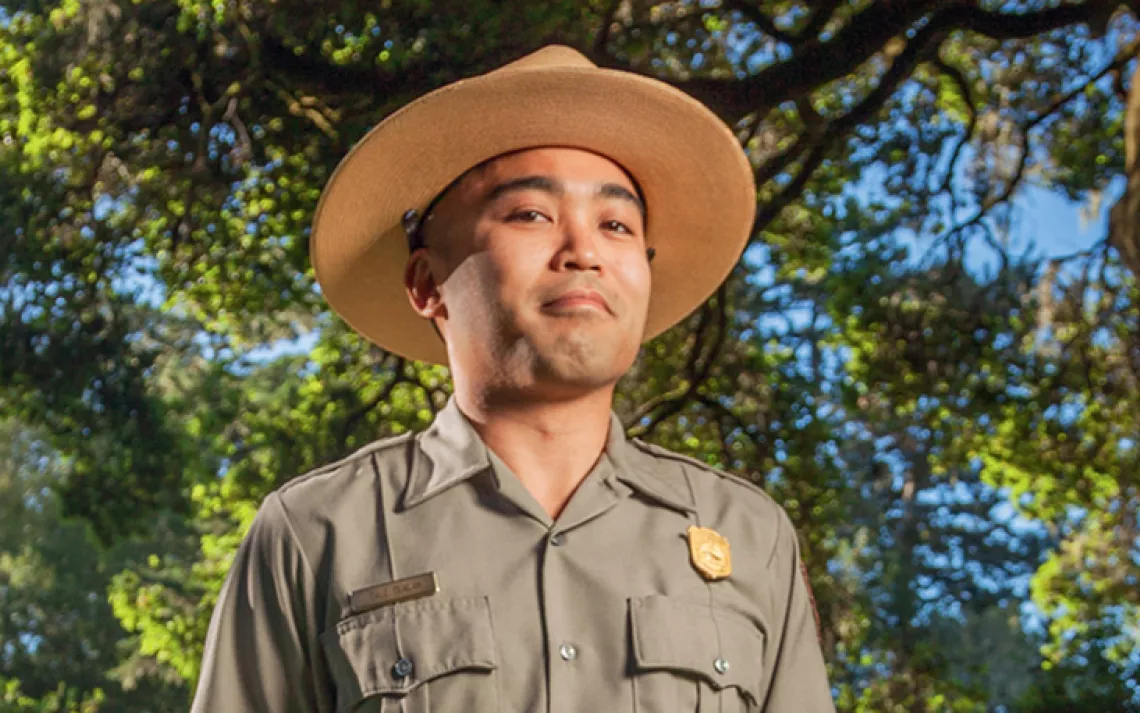Gabriel Gonzalez Wants Renewable Energy for All
The Ready for 100 organizer sees an opportunity for a better, more just world

Photo by Christian Ngo
One evening in the late 1990s, Gabriel Gonzalez was holding a staff meeting for the Northwest Neighborhood Federation, a local nonprofit that he ran in Chicago, when a group of parents stopped by. Their children’s school was overcrowded—so overcrowded that the lunchroom had been turned into a classroom. Could the organization help?
Gonzalez and his staff decided to investigate. What they found astonished them. It turned out that Chicago’s public schools were suffering from massive overcrowding. One elementary school had been built for 800 kids but had 1,600. At another, classes were being held on a loading dock. “It was crowd management; it wasn’t learning,” Gonzalez says.
He and his colleagues began reaching out to the area’s immigrant and white working-class communities. Eventually, a diverse coalition formed that was able to apply enough pressure to the school board to secure millions of dollars' worth of school construction and improvements. “We got additions put in every elementary school. We got more teachers hired to reduce class size. Kids got to learn,” Gonzalez says.
For Gonzalez, this early experience in community organizing crystalized the power of bringing everyone to the table to affect change. “I think it was a combination of a lot of people from disparate communities coming together on one issue that really scared the political powers that be,” he says.
Gonzalez has carried this insight with him over subsequent decades of community organizing on issues ranging from immigration and mass incarceration to workers’ rights, and he brings it to his current role as national volunteer co-lead for the Sierra Club’s Ready for 100 campaign. So far the movement has mobilized 70 cities and towns across the United States to commit to transitioning to 100 percent renewable energy.
The campaign’s momentum is especially exciting considering the federal government’s dismal inaction on climate change. For Gonzalez, the question isn’t just when the country will fully embrace renewable energy, but how. “If we change the source of generation from coal and nuclear and natural gas to renewables, that is a huge victory, but honestly, that is not enough,” he says. “It needs to be a just transition.”
As a kid, Gonzalez witnessed firsthand what happens when an industry undergoes a seismic shift without regard for the communities that depend on it. He grew up in Michigan City, Indiana, not far from the steel mills of Gary, where most of his friends’ dads worked. It was an idyllic place to live until the 1980s, when operations started moving overseas and the mills closed. By the time Gonzalez was in high school, unemployment and crime were rampant and families were falling apart.
“I grew up seeing what happens when your town isn’t paid attention to, when people are disregarded,” Gonzalez says. As we push for renewable energy, he argues, we need to be thinking about what happens to those employed in the fossil fuel industry, as well as what kind of jobs are being created in the new industry. Furthermore, if renewable energy is cheaper than coal or natural gas, shouldn’t our rates eventually go down? In other words, he says, “we should all benefit.”
His childhood instilled in Gonzalez a fierce desire for justice, and this threads together causes that to outside observers may seem unrelated. He spent much of the early 2000s pushing for comprehensive immigration reform as the national campaign director of the Community Center for Change, and his work on the issue eventually led him to confront the problem of climate change.
“I started to read some things, mostly about geography and migration patterns, and that led to questions about why people are moving so much, where they are moving from and where they are moving to,” Gonzalez says. “That brought me to a whole world of information about climate change that up until then had just been a news headline.”
Gonzalez learned, for example, about how the violent crime in El Salvador that was driving people north was preceded by a massive drought that forced people off their land and into the city. “Gangs took advantage of that, and now people are so scared for their children that they are willing to roll the dice with their lives to come here,” he says. “When people blame people for coming here instead of asking why they are coming, I think they are really missing the boat.”
His growing concern about climate change prompted Gonzalez to connect with Sierra Club organizers and to start considering what he could contribute. His job as volunteer co-lead for Ready for 100 began in November. “It’s critical that we have leaders guiding the work who bring an intersectional analysis as well as a background in serving and supporting the most vulnerable among us, and that’s Gabe in a nutshell,” says Jodie Van Horn, the national director for Ready for 100. “We need people like him in our leadership ranks if we're going to apply a justice lens to the work that we do on clean energy and climate.”
“I didn’t know all the ins and outs of climate change from a policy perspective. I’m learning a lot of the technical details,” Gonzalez says. “But I know how to organize people. I know how to build bridges. And I’ve got these four kids that I love. They’re 23, 20, 14, and 1. I’m not going to be here, but they are. I gotta do something.”
More: Watch how Gonzalez, along with his wife, Marissa Graciosa, started the organization Protect RP to defend undocumented immigrants against ICE raids in the neighborhood of Roger Parks, Chicago.
 The Magazine of The Sierra Club
The Magazine of The Sierra Club



